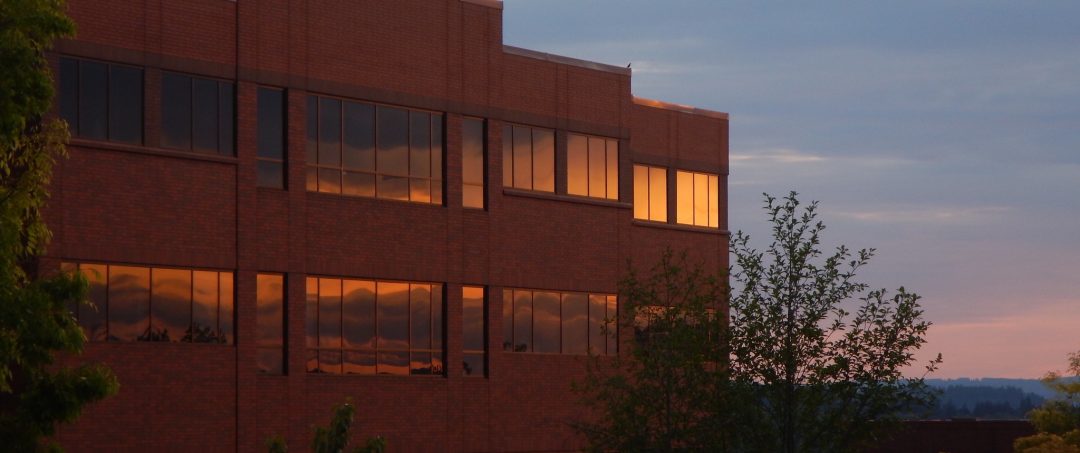Download the article:
 Academic-Praxis.1.1-4.Oleksiyenko.pdf
Academic-Praxis.1.1-4.Oleksiyenko.pdf
The recent special issue which I co-edited with my colleague, Liz Jackson, discussing dilemmas affecting the freedoms of speech, teaching and learning in the post-truth age (see Oleksiyenko and Jackson 2020), points to the importance of developing an academic praxis, in which each of us continually questions the purposes, processes and values of teaching, learning and inquiry. These days, I am increasingly inclined to think of higher learning as a journey of ceaseless introspection, which starts with the first steps in early childhood education, and intensifies with each ensuing level attained. On the way up, wider vistas open up and the notion of learning acquires a different sense of discovery. Climbing higher means seeing more, further and deeper. Those who love to explore mountain trails – Hong Kong being renowned for its myriad of scenic hiking spots – can likely immediately visualise this concept of multidimensional discovery.
Embarking on complex intellectual projects in higher education requires learners to re-examine themselves through disparate texts, discourses and imaginaries, which reveal new perspectives on the horizon, as well as unexpected depths of the explored phenomena. As they consider problems in their communities and societies, learners hone the mastery of asking questions, and develop more sophisticated solutions to the challenges they experience in the turbulent and unpredictable world that surrounds them.
As more experienced “mountain guides”, teachers have the privilege of playing a significant part in the process of self-discovery in higher learning, as they can suggest where to stop, slow down, or take extra caution, drawing on their own experiences of self-exploration. Good teachers tend to have a supply of rich theoretical and experiential knowledge that students can use when shaping their personal and social selves, as they climb up the steep rocks of self-discovery. Good teachers can also provide a wide range of comparative perspectives, which allow their students to engage with innovative theories and practices in learning, and to encounter new subjects of interest. By creating a mutually engaging and respectful space for self-discovery, good teachers make the academic praxis more sophisticated, rewarding and exciting.
My own higher education journey and academic praxis, as well as those described in my volume on global mobility and higher learning (Oleksiyenko 2019) reveal significant benefits from having wise companions and guides, who can point out the right direction or dissuade one from taking the wrong path. Even when the advice and narratives of the important others seem enigmatic and fail to penetrate at first (higher learning can be steep and tiring indeed), one can certainly enjoy the sense of discovery in the long run. The world gets larger and more interesting when the benefits of good companionship materialize. In my role as international journal editor of “Academic Praxis”, I feel fortunate to invite teachers and students from diverse cultures and educational backgrounds to engage in these explorations of higher learning, and share insights derived from their disparate experiences related to self- investigation and discovery.
As Ruth Hayhoe (2021) wisely argues, good scholarship tends to emerge when we dedicate ourselves to shaping the mastery of intellectual listening and creating spaces for diverse ideas and interpretations. As we delve deeper into the ideas and self-discoveries of others, we expand and sharpen our vision and develop new layers of curiosity and a desire to explore. At the same time, we gain opportunities to learn to listen to each other better, going further into each other’s stories, seeing and understanding each other deeply. Good academic praxis emerges from sharing that encourages a rethinking of lived experiences, experimentation with a higher level of creativity, and developing the courage to discover. My hope is that this journal can provide a vibrant space for this type of sharing to occur.
References
Hayhoe, R. (2021). Cross-cultural understanding and the listening intellect. Universities & Intellectuals, 1 (1), 12-20.
Oleksiyenko, A. V. (2018). Global mobility and higher learning. London and New York: Routledge.
Oleksiyenko, A. V., & Jackson, L. (2020). Freedom of speech, freedom to teach, freedom to learn: The crisis of higher education in the post-truth era. Educational Philosophy and Theory, 1-6, https://doi.org/10.1080/00131857.2020.1773800
To Cite This Article:
Oleksiyenko, A. (2021). Academic praxis: An editorial note. Academic Praxis, 1: 1-4.
Other Recent Articles
 Chinese Students Collaborating Across Cultures Does International Higher Education Benefit from Collaborations? International education is argued to create better opportunities for higher learning if university program designers engage both personal and collective agency in studies of foreign languages and societies (Oleksiyenko and Shchepetylnykova, 2021), and thus increase students’ chances for greater engagement with alternative learning styles and contexts (Li, 2014; Phuong-Mai, et al., 2005). Yet, achieving a highly efficient design for cross-cultural learning is a challenge when courses prioritise technical… Read more
Chinese Students Collaborating Across Cultures Does International Higher Education Benefit from Collaborations? International education is argued to create better opportunities for higher learning if university program designers engage both personal and collective agency in studies of foreign languages and societies (Oleksiyenko and Shchepetylnykova, 2021), and thus increase students’ chances for greater engagement with alternative learning styles and contexts (Li, 2014; Phuong-Mai, et al., 2005). Yet, achieving a highly efficient design for cross-cultural learning is a challenge when courses prioritise technical… Read more Ukrainian Academics in the Times of War On February 24, 2022, Russia launched a brutal full-scale war of aggression against Ukraine. Eight years after the invasion of the Crimea and Donbas, the Russian government acted on Vladimir Putin’s assertions that Ukraine is not (and should not be) a country – a view deeply ingrained in propaganda-addled Russian popular opinion, to attempt to obliterate the Ukrainian state and identity. The Russian army has been bombing Ukrainian cities, including residential areas, universities and schools.… Read more
Ukrainian Academics in the Times of War On February 24, 2022, Russia launched a brutal full-scale war of aggression against Ukraine. Eight years after the invasion of the Crimea and Donbas, the Russian government acted on Vladimir Putin’s assertions that Ukraine is not (and should not be) a country – a view deeply ingrained in propaganda-addled Russian popular opinion, to attempt to obliterate the Ukrainian state and identity. The Russian army has been bombing Ukrainian cities, including residential areas, universities and schools.… Read more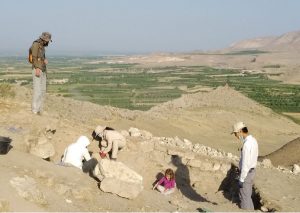 Interdisciplinary Learning in an Intercultural Setting During Archaeological Fieldwork Since archaeology studies the full spectrum of the human past, it is naturally an academic discipline that engages a very wide range of topics – spanning the humanities, social sciences, physical sciences, and technology. Often, archaeological projects also take place in international settings, with team members joining from around the world. Therefore, archaeological fieldwork offers an ideal laboratory for experimenting with interdisciplinary learning in intercultural settings. Over the last several years, our project has engaged… Read more
Interdisciplinary Learning in an Intercultural Setting During Archaeological Fieldwork Since archaeology studies the full spectrum of the human past, it is naturally an academic discipline that engages a very wide range of topics – spanning the humanities, social sciences, physical sciences, and technology. Often, archaeological projects also take place in international settings, with team members joining from around the world. Therefore, archaeological fieldwork offers an ideal laboratory for experimenting with interdisciplinary learning in intercultural settings. Over the last several years, our project has engaged… Read more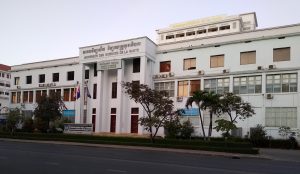 Higher education in Cambodia: Reforms for enhancing universities’ research capacities While Cambodian higher education is facing many challenges (see Heng et al., 2022a; Sol, 2021), the major issue that calls for reforms is a limited research capacity of Cambodian universities and academic staff. This problem needs immediate attention. Policy actions are required to improve the research landscape in the country and empower local academics for a more productive and impactful academic performance. In the following sections, I elaborate on my arguments Limited research output:… Read more
Higher education in Cambodia: Reforms for enhancing universities’ research capacities While Cambodian higher education is facing many challenges (see Heng et al., 2022a; Sol, 2021), the major issue that calls for reforms is a limited research capacity of Cambodian universities and academic staff. This problem needs immediate attention. Policy actions are required to improve the research landscape in the country and empower local academics for a more productive and impactful academic performance. In the following sections, I elaborate on my arguments Limited research output:… Read more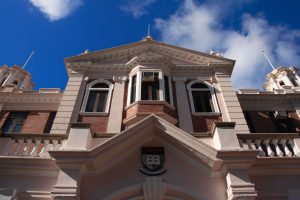 Experiential Learning at the University of Hong Kong Innovation in education always starts with an idea which gradually develops into on-the-ground practices, and can then spread to different areas in an education institute. In higher education, innovation can be demonstrated in various ways. While people might relate innovation naturally with the use of new and advanced technology, curriculum can also be an area where innovative ideas are applied. In fact, as scholars have highlighted, innovation aimed at transforming the curriculum was beneficial not… Read more
Experiential Learning at the University of Hong Kong Innovation in education always starts with an idea which gradually develops into on-the-ground practices, and can then spread to different areas in an education institute. In higher education, innovation can be demonstrated in various ways. While people might relate innovation naturally with the use of new and advanced technology, curriculum can also be an area where innovative ideas are applied. In fact, as scholars have highlighted, innovation aimed at transforming the curriculum was beneficial not… Read more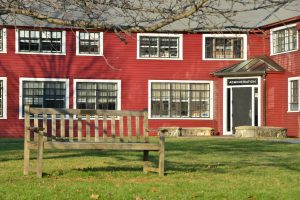 Innovation and Liberal Arts Education In the contemporary, globalized, neoliberal landscape of higher education, the increasingly intertwined relationship between government, industry, and universities is changing the nature and mission of higher education. The imperative of economic growth imposes new demands on the type of graduates that are needed to enter the workforce, and consequently on the priorities that universities should set. The call to innovate cannot be ignored if a university wishes to survive. Within the context of higher education,… Read more
Innovation and Liberal Arts Education In the contemporary, globalized, neoliberal landscape of higher education, the increasingly intertwined relationship between government, industry, and universities is changing the nature and mission of higher education. The imperative of economic growth imposes new demands on the type of graduates that are needed to enter the workforce, and consequently on the priorities that universities should set. The call to innovate cannot be ignored if a university wishes to survive. Within the context of higher education,… Read more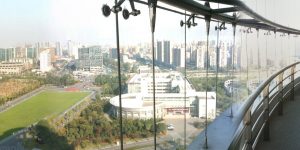 Conceptualization and Development of Global Competence in Higher Education: The Case of China The notion of global competence of students increasingly raises concerns among both educational researchers and practitioners. In 2018, the PISA tests assessed global competence of 15-year-old students for the first time (OECD, 2018). According to OECD, such a multidimensional capacity has been identified as the individual ability of examining “local, global and intercultural issues”, understanding and appreciating “different perspectives and world views”, interacting “successfully and respectfully with others, and taking “responsible action toward sustainability and… Read more
Conceptualization and Development of Global Competence in Higher Education: The Case of China The notion of global competence of students increasingly raises concerns among both educational researchers and practitioners. In 2018, the PISA tests assessed global competence of 15-year-old students for the first time (OECD, 2018). According to OECD, such a multidimensional capacity has been identified as the individual ability of examining “local, global and intercultural issues”, understanding and appreciating “different perspectives and world views”, interacting “successfully and respectfully with others, and taking “responsible action toward sustainability and… Read more Quiet Leadership in Schools: A Personal Reflection This article argues for the importance of quiet, introverted leaders in international schools as a counterbalance to the extroverts who seem to make up the bulk of leadership posts in these institutions. It builds on essays by Liz Jackson (2021) and Bruce Macfarlane (2021), which explore leadership in university settings. These authors examine the de facto expectations of leaders to be outgoing and forceful, but challenge the idea of the heroic leader, suggesting that more… Read more
Quiet Leadership in Schools: A Personal Reflection This article argues for the importance of quiet, introverted leaders in international schools as a counterbalance to the extroverts who seem to make up the bulk of leadership posts in these institutions. It builds on essays by Liz Jackson (2021) and Bruce Macfarlane (2021), which explore leadership in university settings. These authors examine the de facto expectations of leaders to be outgoing and forceful, but challenge the idea of the heroic leader, suggesting that more… Read more

